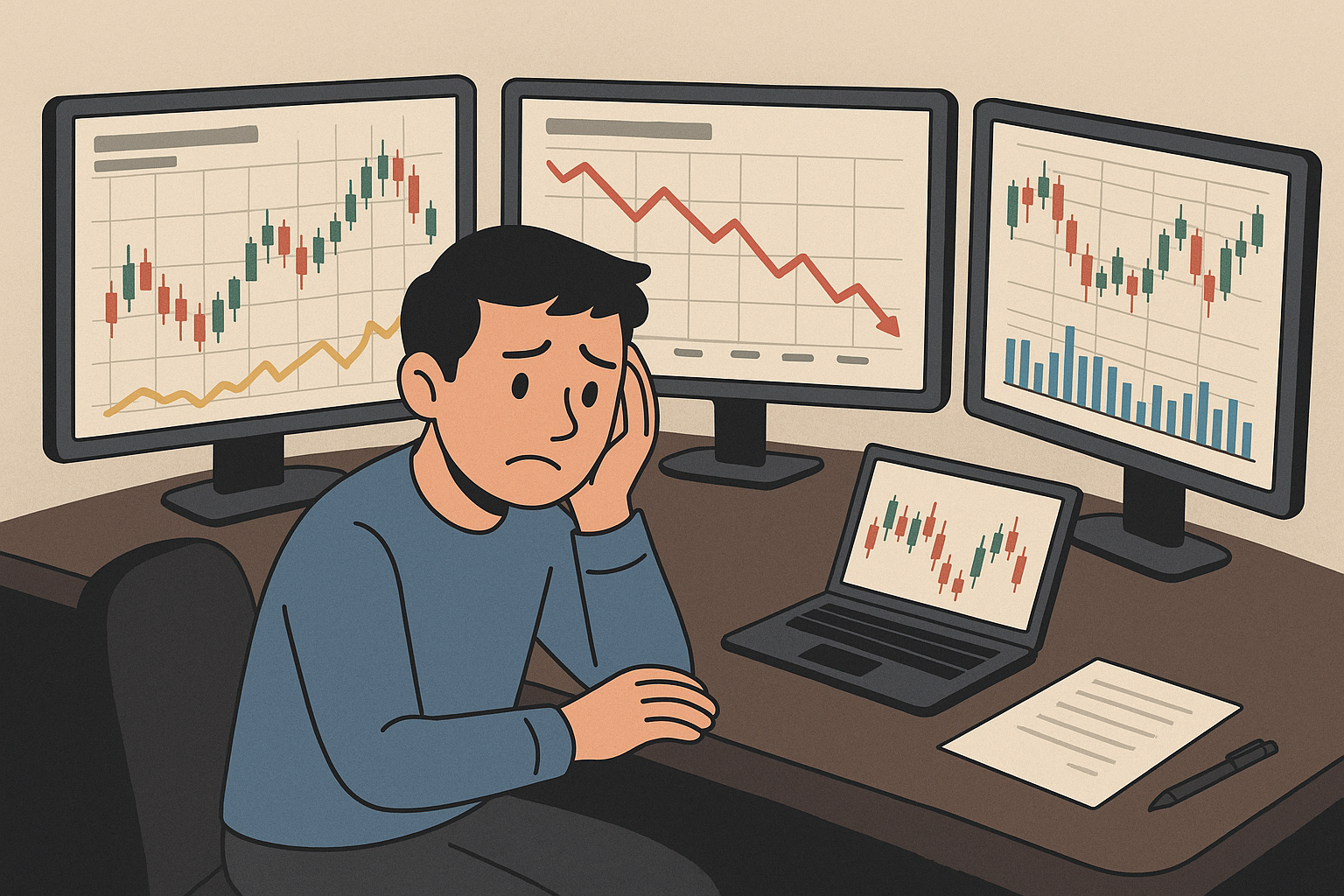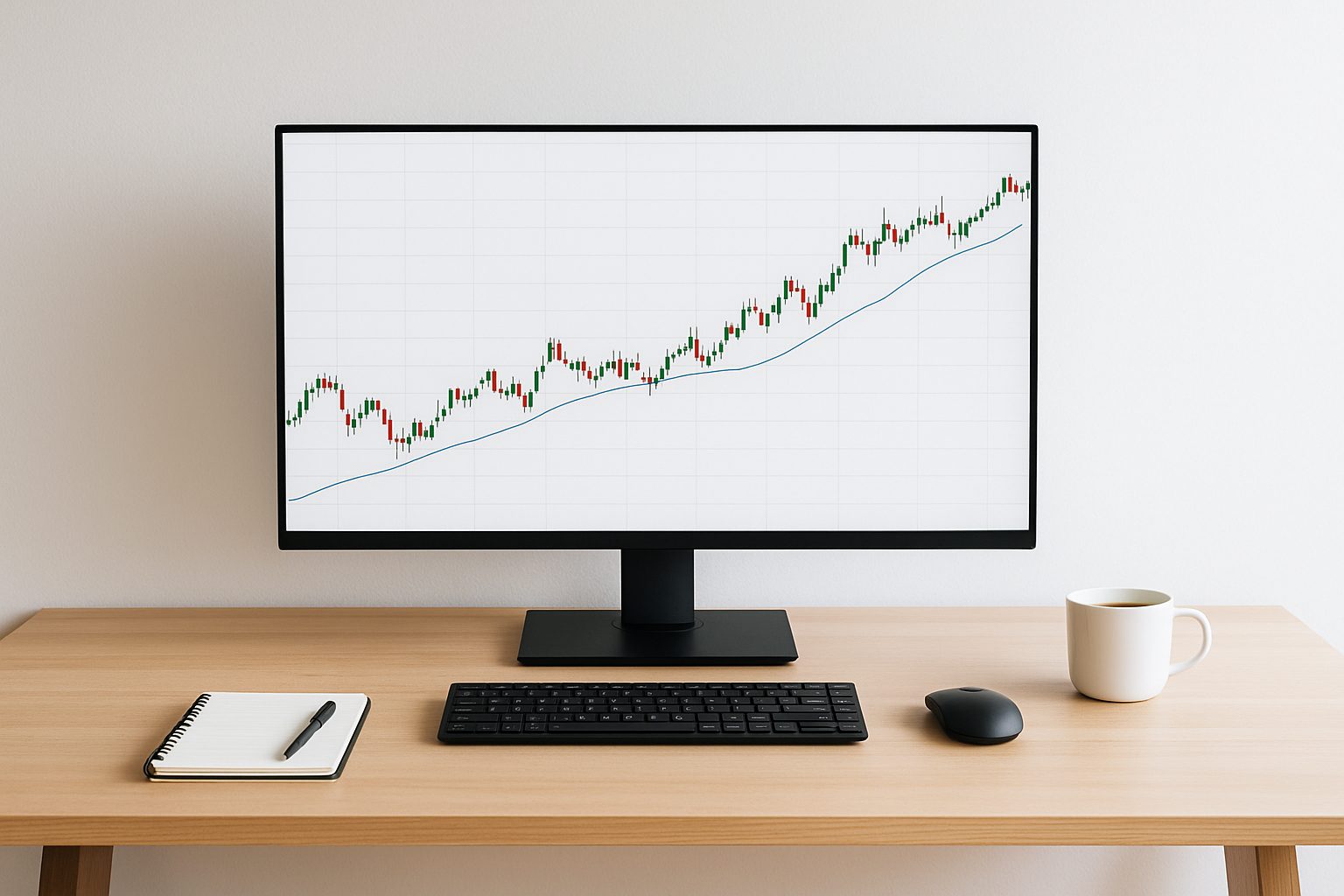Content
- 3 Mistakes New Traders Make
- These Mistakes Happen The Why & How
- Deeper Look
- Example Walkthrough
- Common Mistakes Recap
- Mini-Checklist
- Conclusion
- FAQ
3 Mistakes New Traders Make
Trading feels exciting, until reality hits. Charts flash, prices move, and emotions spike. Within weeks, many beginners find themselves frustrated, confused, or worse, with a shrinking account balance.
If that sounds familiar, don’t worry. Every trader starts here. The good news? These mistakes are both predictable and avoidable.
In this post, we’ll unpack the three most common trading mistakes beginners make, why they happen, and how to sidestep them effectively.
(Educational disclaimer: ChartsWyn provides educational content only; this is not financial advice.)
1. Risking Too Much on a Single Trade
The mistake:
New traders often risk a large portion of their account on one “perfect” setup. They believe: “If this works, I’ll double my money.”
However, even strong setups fail. And when they do, the loss can be painful.
Why it matters:
Over-risking triggers emotional decisions. Once fear takes over, logic disappears, and one bad trade can wipe out weeks of effort.
A simple rule:
Never risk more than 1–2% of your trading capital per trade. If your account holds $1,000, that means risking $10–$20, not $200.
2. Over-trading
The mistake:
Many beginners take too many trades, too fast, trying to recover losses or “stay active.” It feels productive at first. Yet, in reality, it’s emotional trading disguised as discipline.
Why it matters:
Every trade has a cost, spreads, fees, and mental energy. Over-trading drains profits and leads to burnout.
Tip:
Set a maximum number of trades per day. Focus on quality, not quantity. Even one well executed trade can be enough.
3. Ignoring Emotions
The mistake:
Trading appears logical, until you’re in a live position. Suddenly, fear and greed take over.
Beginners often:
- Exit too early due to fear of losing.
- Hold losing trades out of false hope.
- Double down to chase losses.
Why it matters:
Without emotional discipline, even a solid strategy falls apart.
Simple fix:
Keep a trading journal to track your thoughts and feelings. Over time, you’ll recognize emotional patterns and awareness leads to control.
These Mistakes Happen The Why & How
Let’s dive deeper into why these mistakes happen, and how you can prevent them.
Mistake 1: Poor Risk Management
Most beginners think in profit goals instead of loss limits.
They ask, “How much can I make?” rather than “How much can I afford to lose?”
Professionals think the opposite way.
- Define your stop loss first. Decide where you’re wrong before you enter a trade.
- Position size correctly. For instance:
- Account: $1,000
- Risk per trade: 1% ($10)
- Stop distance: 20 pips
- Position size: 0.05 lots
With this method, consistency replaces guesswork.
Related: Understanding Risk Management
Mistake 2: Lack of Structure (Over-trading)
Why do traders over-trade? Because markets create endless opportunities, and the illusion of control.
To counter this, build a trading plan that defines:
- What your ideal setup looks like.
- When you trade (and when you stop).
- How you track results daily.
A plan filters noise and limits random actions.
Related: How to Read Market Structure
Mistake 3: Ignoring Psychology
Markets test patience more than skill. While a good setup helps, a calm mindset sustains consistency.
To stay balanced:
- Take deep breaths before placing a trade.
- Step away after three consecutive losses.
- Review screenshots weekly to see behavior patterns.
Related: Emotions in Trading: Staying Calm Under Pressure
Deeper Look
Trading Is a Game of Probabilities
Even professionals lose trades daily. The difference is, they manage risk and stay consistent.
Think of trading like poker:
You can’t control which cards you get, but you can control how much you bet and when you fold. Good traders survive bad trades because they protect their downside.
The Psychology Behind Mistakes
- Loss aversion: Losses feel twice as painful as equivalent gains.
- Overconfidence: A single win creates false certainty.
- Revenge trading: Trying to win back losses quickly, usually causing bigger ones.
Understanding these tendencies turns emotion into awareness, and awareness into control.
The Path to Improvement
Combine data and discipline to progress:
- Log every trade in a spreadsheet.
- Track your win rate, average loss, and emotional notes.
- Review and refine weekly.
By doing this, you transform trading from gambling into calculated decision, making.
Example Walkthrough
Let’s take a real-world example.
You have $1,000 and spot a breakout pattern on EUR/USD. Confident, you risk $100 on one trade. It fails, you’re down 10%. Frustrated, you double your next trade.
Soon, you’re down 25%.
Now, imagine you had risked only 1% ($10).
Two losses would equal -2% — not -25%.
Your confidence and capital would both remain intact.
This is how professionals survive. They don’t need to win every trade; they just avoid disaster.
Common Mistakes Recap
| Mistake | Why It Hurts | Simple Fix |
|---|---|---|
| Risking too much | One loss erases progress | Risk 1–2% per trade |
| Over-trading | Emotional and costly | Trade less, focus more |
| Ignoring emotions | Fear ruins strategy | Journal and reflect weekly |
Mini-Checklist
- Risk 1–2% per trade
- Always use stop losses
- Wait for your ideal setup
- Keep a detailed trading journal
- Step away after emotional trades
- Review and refine every week
Conclusion
Every trader makes mistakes, but successful traders learn quickly. They see losses as feedback, not failure.
Avoiding these three mistakes won’t make you instantly profitable. However, it will help you protect your capital, trade with more patience, and develop lasting discipline.
Remember: the goal isn’t to win every trade, it’s to build habits that keep you in the game.
FAQ
Q1: What’s the biggest mistake new traders make?
A: Risking too much on one trade. It’s the fastest way to drain your account.
Q2: How can I control emotions while trading?
A: Use a trading journal, practice breathing before entries, and limit daily losses.
Q3: Should I trade every day?
A: Not necessarily. Trade only when your strategy gives clear signals.
Q4: How long does it take to become consistent?
A: Usually 6–12 months of practice and review, depending on discipline and mindset.
Disclaimer
ChartsWyn provides educational content only; this is not financial advice. Always do your own research and consult a licensed financial advisor before making any trading decisions.


